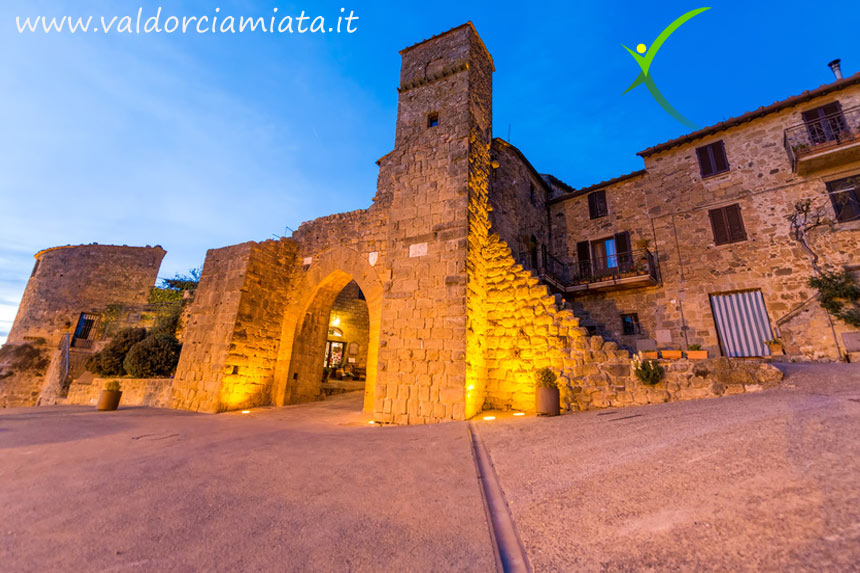Monticchiello is a charming medieval village of Val d’Orcia, Tuscany, able to conquer with its charm the most casual tourist.
There is only a prominent tower at the top of a hill. The remains of its walls and its medieval gate you see when tourists arrive almost close to the castle.
Emotions to experience are endless because the story involves in its particular originality of the past, as if to emphasize the peculiarities of the past. Sometimes we forget this wealth to know because it is our history that faces constantly on the path of life, outlining its cultural importance.
The origins of the village are lost in time. If we wanted to feel it is of Roman origin it could assume his belonging to the Gens Clelia, by deriving the name from the Latin Mons Cloelii Monticchiello.
Monticchiello is in the list of castles in 943 Lamberto Aldobrandeschi yields to Badìa Amiatina.
The history of Monticchiello begins to acquire importance only from the thirteenth century, when the population, tired to mismanagement of power by the Teutonic Knights, who had obtained the castle in fief from the Church of Rome for the merits acquired in the defense of holy places, decide to lean against the Republic of Siena, becoming his staunch ally.
Heir of an old and not forgotten solidarity is the Teatro Povero, more modern and eye-catching sign of the vitality of the country and the ability of the population to find themselves, to get in place and reassert itself, addressing issues of great relevance.
With this cultural activity there is occasion to find the right balance between socializing and brilliant discussion of historical and topical themes that right in the theater find their natural setting.
To make a simple theatrical performance could be enough a committee, a group of people who organize themselves. A more or less amateur company. The Teatro Povero since 1980 has tried to expand his project: from May of that year he formed the cooperative called Compagnia popolare del Teatro Povero di Monticchiello.
A project, a dream, a reality for which even today is being fought on the front lines. Behind the word “teatro” can be found in Monticchiello expectations, plans and dreams of an entire community.
The theater can not remain simply on a stage, confined to a scene. The theater, here, has always lived in the squares, in the streets, in the common desire to do more and better for the lives and territory.
This explains why today pledged to carry spectacles, manage the Granaio with all its amenities, the museum, the Taverna di Bronzone and much more: a constant growth and development open to the inventiveness and participation of members.







